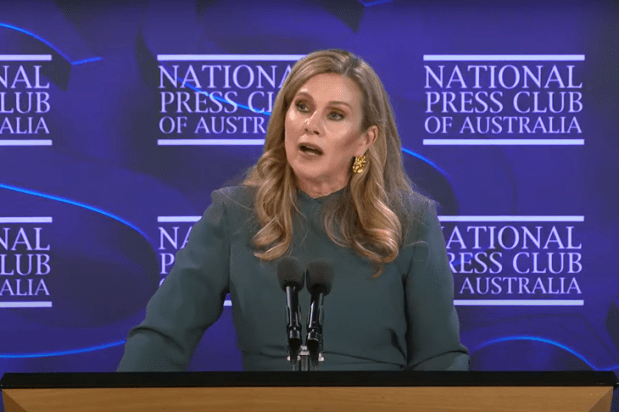On Australia Day at Sydney Cove, January 26, 1988, people surrounded the foreshores and land in packed groups to see a large flotilla of tall ships sail into the harbour. The estimates were 2 million by one newspaper, and 2.5 million by another, which would have been 1/8th of the population. The Sydney Morning Herald said the crowd was ‘…by far the largest crowd to attend a single Australian event.’
Things sure have changed since then, as they have in all English-speaking countries. The concept of tall ships would now be seen as the manifestation of colonialism, a wicked thing, but in 1988, such a thought was only in the minds of academics and activists, if at all.
Australia Day commemorates the white settlement of Australia in 1788 as a penal colony for 548 male and 188 female convicts. In 1980, the Commonwealth government established the Australian Bicentennial Authority (ABA) to plan and co-ordinate a year of commemorative events and projects. It was unashamedly a celebration, in fact a catchy song was commissioned by the ABA called Celebration of a Nation.
I joined the Western Australian office of the ABA as a young Project Officer in 1985, and afterwards, I was on the board of the Australia Day Council. At the ABA, I administered grants for events and projects in a wide range of areas, such as arts, sport, heritage, capital works, publishing, and special events. I had an inside view of the sentiment of the nation toward Australia Day, in contrast to some of the recent rewriting of that history.
When I joined the ABA, there was little interest in Australia Day. The memory of protest against the Vietnam War created a climate hostile to patriotism, and national pride was seen as ‘uncool’. But things were changing.
The professionalisation of sport in Australia, through the establishment of elite sport institutions, started to produce winning results in Olympic and Commonwealth events, and this morphed into a raucous form of national pride, best expressed in the vulgar sporting chant ‘Aussie Aussie Aussie, oi, oi oi!’ Also, there was a growing understanding that the Vietnam veterans were treated appallingly by the protest movement of the era, and the view changed that the vets were more like heroes than baby killers. This resulted in a ‘Return Home’ parade in Sydney for the veterans in 1987, which was a complete reversal of the previous sentiment that was so damaging for the veterans.
When I joined the ABA there was little interest in Australia Day paraphernalia such as flags and bunting. Hardly anyone wanted it. This changed, and by 1988 many outlets were selling it, with corporates, radio stations, and the wider public, holding Australia Day events. There were massive fireworks celebrations in the Capital of Western Australia, Perth organised by a radio station that drew enormous crowds, suburban streets had street parties, and even flags in the front of houses appeared.
There were voices of dissent, with some protest marches by Aboriginal groups and their white supporters in Sydney. There were also amusing stunts such as book launches of ‘unacceptable’ books supported by the ABA being thrown in the harbour, or launched, as a sign of protest. But the corporations, celebrities, and elites were enthusiastically on board.
Corporations were comfortable supporting Australia Day, and they were major sponsors of many activities. There was a prestigious lunch held in Government House (Perth) on Australia Day after the Bicentenary which was generously sponsored by Australia Post and other corporations. Australia Post gave out stamps and commemorative booklets at these lunches. I still have one, dated 2003, that commemorates tennis legend Margaret Court, something unthinkable now, given she has been cancelled for her conservative Christian views.
Let’s skip forward to the current era. Now nearly all the national cultural, educational, commercial, religious, sporting, and professional institutions have gone all in with Woke ideologies. This transformation has been rapid, and without any resistance from those institutions; they didn’t even fire a shot defending values such as national pride. In their place, Diversity, Equity, and Inclusion (DEI) has been taken on with religious zeal, one that offers many opportunities to express virtue, but certainly not forgiveness.
Australia Day is now on its last legs. It is drenched in many DEI sins: colonialism, white supremacy, racism, misogyny, and that is before we get to the ones not even mentioned yet, but that no doubt should have been addressed in 1788, such as homophobia, transphobia, ableism, and not catering for the neurologically diverse.
At least one major grocery chain has stopped selling Australia Day merchandise, and few other shops, except the appropriately named ‘Reject Shop’, still stock it. Sporting organisations can be terribly evasive about holding events on Australia Day, and if they do, they do not want to refer to the day as Australia Day, but rather call it the ‘holiday’ or something banal.
The captain of the Australian Cricket team, Pat Cummins, said this week that he was a patriot, but then inserted a caveat, saying that ‘Australia Day means different things to different people’. Of course, Australia Day means different things to different people, every holiday (Christmas Day, Easter, Labour Day) means different things to different people, but we don’t go moving them around the calendar, or deleting them.
The passive-aggressive line ‘different things to different people’ will become the catch-cry to delete Australia Day. The idea it can be moved makes no sense, as it is highly unlikely that those who are offended by the concept of national pride are going to change their views when the date is changed. Why would they? If the celebration of the settlement of a colony by white people is evil, who would want to celebrate evil?
If we push this analysis a bit further, there is another problem, that falls shortly after Australia Day.
ANZAC day, on 25 April.
ANZAC Day commemorates the sacrifice of soldiers in all wars in Australia (and New Zealand) and was created after the first world war.
ANZAC Day has had a similar fall and rise in popularity like Australia Day, but faces strong headwinds. It too will be deleted.

























